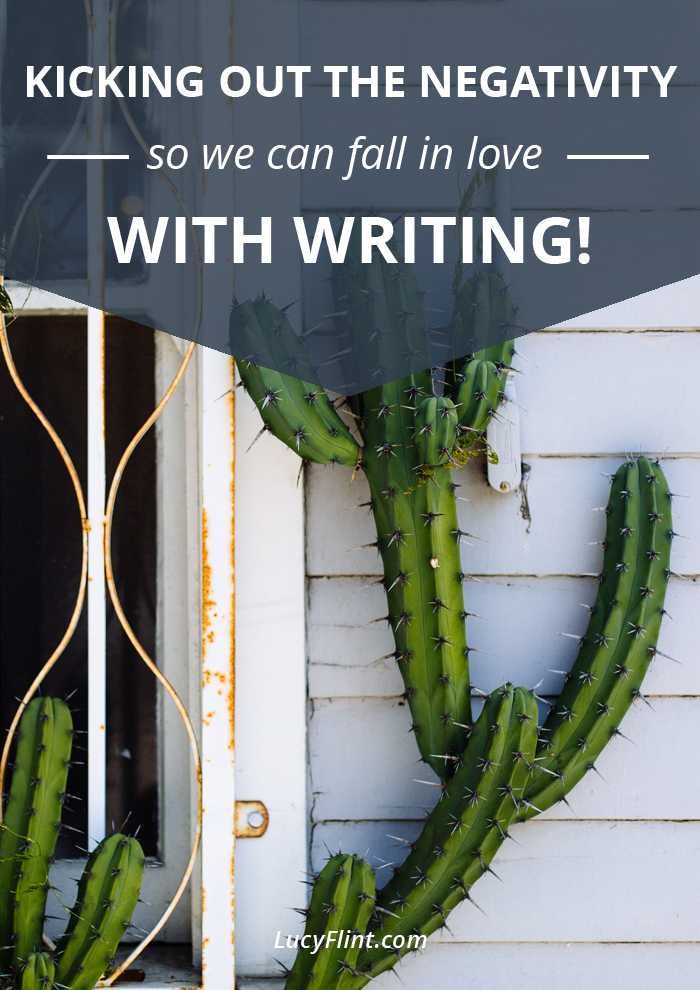The Counterintuitive Way to Protect Your Writing (from Everything that Gets In the Way!)
/I can't believe that it was a year ago that I re-launched this blog as a place for lionhearted writers to gather and talk about courage, self-management, and an incredibly healthy writing life.
A year of courageous writing! Let's all dig in to a big bowl of confetti!
So to celebrate this month, I'm coming back to one of my favorite things: quotes about writing.
If you've been around here for a while, you've probably noticed that I'm addicted to quotations.
I've done a series on helpful writing quotes, and I did another post on some of the best quotes for the "shadowy side" of the writing life. (Which I still loooooove. They are good quotes, y'all.)
And this month, I'm coming back to them again.
Our writing lives are shaped by voices, after all.
By the words of our teachers, our readers, our characters, our own selves, and all the books and writers that have gone before us.
So many voices. So many words.
And the awesome thing is, we get to choose which ones we'll hold on to. Which ones we'll believe in, and learn from.
I love that.
Here's the quote that's on my mind today:
I love this quote. This reminder.
Because this is where I've been lately, my friends.
Over the last month, I've watched my grandma's health decline to nothing. I visited her, read to her, and even sang to her (not very well) because singing was something that still got through.
I saw her the night before she died, and we all sang Happy Birthday and ate cake to celebrate her ninety-second year, even though she couldn't respond.
I sat with my mom the next morning as we got the news that my grandma had died. I witnessed the flurry of preparation for a visitation, a funeral. I helped proofread her obituary.
We welcomed my sister and her husband and their four incredible kids into our home; I talked with friends and family for five hours at a visitation.
There was a funeral, a burial, a luncheon. We brought home flowers from the church, and I woke the next morning to the scent of roses.
I stared at the obituary photo of my grandma (bright-eyed, smiling, content) to erase the memory of how she looked the night before she died—when she already seemed like a ghost.
Along the way, I totally neglected a head cold, which responded by turning into some massive sinus-infection-meets-bronchitis thing.
(I sound very elegant while typing all this, coughing like this and sniffling, sitting here in my pajamas and my robe amidst a pile of tissues. Real talk, y'all.)
And oh yeah, I didn't do any writing. Not a scrap.
My novel has curled into a tiny little ball. Its notes look like they were written by someone else. The current draft—my epic structural rewrite—is cool to the touch, sitting there at just 7500 words.
Here on the blog, I had prepped the Love Your Writing Life series in advance, because we knew Grandma wasn't doing well. I checked in with the posts as they published and read them again, doing the prompts that I could manage to get to.
But for the most part, I felt very, very missing-in-action with writing.
Which is why I love today's writing quote.
Because I can say: That is TOTALLY OKAY.
I had big plans for my writing in February. But it turned into something else.
It was a month for family. I was a granddaughter, a daughter, an aunt, a cousin, a niece, a sister, and a friend. I sang and prayed and held hands and matched faces to names that I'd heard of for decades.
It was a month for relationships. It was time to be the human, more than the writer.
And if this sounds very unremarkable to you, I have to explain: in the first several years of being a full-time writer, I divided my life into Writing and Everything that tries to interfere with writing.
That's the dichotomy that I rode for years, and can I just say: Pitting the rest of your life against your writing gets exhausting.
It turned everything into a fight. It made me bitter. It made me a resentful crazy person.
Please don't do that.
I threw out that paradigm a while ago, and now I try to live by something else.
I want to be a really good human. Someone who pays attention to the world around her. Who catches the nuances. Who loves people first, and then remembers what they say and writes it all down.
Yes, still a writer. A writer to the core. Believe me, I was staring at pictures of my grandma, pictures taken ninety years ago in Puerto Rico, imagining stories for the faces and the places that they showed.
I was absolutely noticing everything at the visitation, the funeral. What, after all, do people say to you, when you've lost someone?
I soaked up the stories that were shared. The sweet moments. As well as the surreal sense of going through the motions.
I was a family member, first and foremost.
Here's the thing, my friends. Splitting life into Writing and Not Writing makes it hard to live well.
So I've decided to choose a better focus. Now I protect both sides of the equation (the writer, the human) by trying to live an attentive life.
Because the heart of being a really excellent human and a really excellent writer is the same: To pay attention. To love big. To notice things. To show up.
When I live like that, I get to be the kind of person—daughter, aunt, granddaughter—I most want to be.
And, when I get back to my writing desk, I find that I have stories to tell.
I'm more calm about getting my writing in, and my writing gets richer at the same time. How's that for a more pleasant way to live?
So this week, my mission is to get well.
To sleep a whole bunch. Eat a lot of chicken noodle soup. Use those clever essential oils, and take plenty of vitamin C and zinc. I'm gonna banish the snot and the cough.
I've also cleared off my desk. I sat and stared lovingly at the outline I have for my novel on the wall. (Oh look! Characters! I have characters! Hello, you little beauties. Next week, we will dance and dance and dance some more.)
And then I showed up in this space to write some words, and to send love to all you lionhearts, and to say:
We are writers, but we are humans first.
That's how it's supposed to be. Let's not get the two confused.
Let's be present every single day, shall we? Let's pay attention to whatever life hands us.
Let's write by being alive, first. By being attentive, first.
And then, let's trust that when it's time to sit at our desks again, our stories will be so much richer, because we've been such real and wonderful people...
Even when we weren't writing.

















